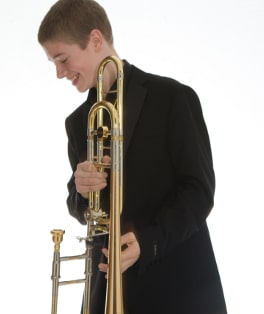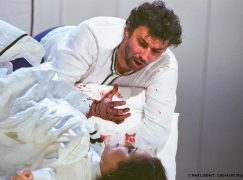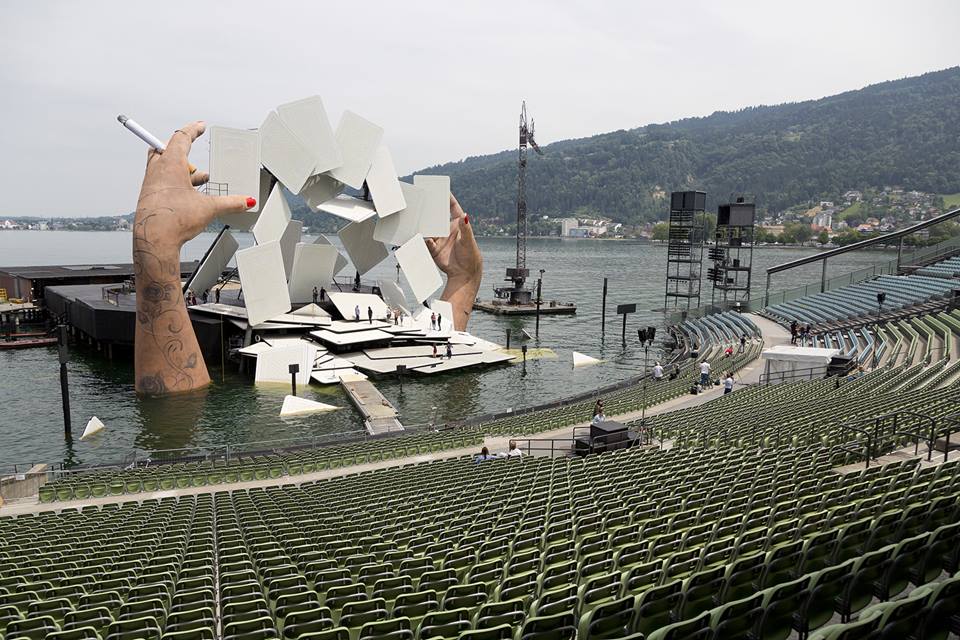Munich have got Diana Damrau to replace the Bulgarian soprano in La Traviata.
Baden-Baden have called in Marina Rebeka to play opposite Joyce DiDonato and Rolando Villazon in La Clemenza di Tito.
It’s turning into the summer of no-shows.

Munich have got Diana Damrau to replace the Bulgarian soprano in La Traviata.
Baden-Baden have called in Marina Rebeka to play opposite Joyce DiDonato and Rolando Villazon in La Clemenza di Tito.
It’s turning into the summer of no-shows.

press release:
MONTREAL, June 29, 2017—The Orchestre symphonique de Montréal (OSM) and Kent Nagano are announcing today that, after a long deliberation, he has decided not to accept the invitation by the OSM to extend his contract as music director beyond 2020.
“We intend to continue the relationship with Maestro Nagano at the end of his term in three years so that the public and all of us can maintain a relationship with the conductor who, ultimately, will have spent 16 memorable years in Montreal,” commented Lucien Bouchard, chair of the OSM’s board of directors. Mr. Bouchard further wishes to highlight the outstanding accomplishments of the maestro, saying Kent Nagano will “leave an indelible mark on the institution,” and to praise Maestro Nagano’s leadership, creativity and discipline.

The most performed operas in Germany in 2015-16 have been announced today. They are:
1 Magic Flute – 27 productions, 268 performances
2 Hänsel und Gretel – 26/215
3 Carmen – 21/157
4 La bohème – 20/164

Composers with most productions: 1. Verdi (98), 2. Mozart (93), 3. Richard Wagner (82).
Composer with most performances: 1 Mozart (752) 2. Verdi (684), 3. Puccini (507).
Nigel Redden is leaving as head of the annual Lincoln Center Festival after almost 20 years.
That’s what’s called creative space.

Nice story here from Peter Moore, co-principal trombone of the LSO:

I’ve just had a fantastic few days in Dublin coaching and playing on the brass week. (For the brassers amongst you who don’t know anything about this, I’d suggest checking it out for next time!). Anyway, on my arrival to the airport (at 5 30 am…) the man behind the BA desk takes one look at my trombone case and tells me I’ll have to check it in to the hold. This has happened before – it usually takes some calm reassurance from me that it fits in the overheard lockers no problem, a little banter about it being my portable motorbike when asked “what is it?” and after a few laughs (hopefully) and a friendly smile they agree to let me take it on board, no problem at all.
It was an instant flat-out no from this jobsworth and after speaking to two of his superiors they told me that their policy changed last year and instruments will have to be checked in if they’re slightly above the required measurements given and that if I didn’t comply with this I wouldn’t be able to board the plane. The silly thing about this is that my trombone case is A) very narrow, B) very shallow and C) quite long, so logically it doesn’t take up anymore space than a regular suitcase as it can be pushed right to the back of the overhead locker.
Anyone flying with British Airways and their instruments or any other airline for that matter, be sure to check their policy before you fly and ring ahead to clear it with them if you can! You never know when the workers are going to throw the rulebook at you and show no understanding or empathy for your situation, like my scenario this morning when I explained that this piece of scrap metal was my livelihood and I depend on it being in top condition to work and earn my money. I explained that I travel around the world with it and it’s never been to big to fit overhead – I have probably averaged 30 flights per year over the last 8 or so years and on the three occasions in my life I have been made to put my trombone with the hold luggage, have collected it at the end to find it:
Either with a whopping great new crease in the bell of slide which made it unplayable and have to be repaired, or best case scenario, the lovely baggage handlers who take great pride in chucking the cases which are littered with “fragile” stickers even harder (I’ve seen them do it) have gifted me with a big dent to add to my growing number of dings due to sometimes being careless and clumsy at work!
They told me I could wrap it up at the excess baggage desk for 20 euros, so I wandered over to find the desk doesn’t open until 7 am (the time of my flight!!!!). I eventually got them to agree to me leaving it with the staff at the gate so it didn’t have to travel along the whole luggage belt. I rushed to the gate as now with all the arguing and back and forth to the desks, I’m now concerned about missing my flight. I arrive at the gate and have one last try to appeal to another dead-eyed jobsworth’s better nature. He goes onto the plane to check with the crew and returns swiftly to almost gleefully tell me that he’s checked with the crew and that I’m not allowed to take it on the plane and that I would have to give it to him right now. At this point I refused and said I wanted to speak to the crew myself, to which he reluctantly agreed.
And GUESS WHAT……
The nice lady onboard took one look at it and said kindly “If it fits overheard, that’s fine with me…” and by some MIRACLE it fitted (as I knew it would because it always does!)
I took my seat and smiled genuinely for the first time since stepping foot in that airport – I was pleased that I had won!!! But it was a horrible experience up until then.
So. Folks. Before you travel with your instrument, PLEASE read up on the airline policy to avoid all of this palava and if possible phone ahead if you can to clear it! And if all else fails, argue like mad!!!
The Vienna State Opera has brought in Jean-François Borras to sing Faust this winter in place of Rolando Villazon, who needs more time for his new job as artistic director of Salzburg’s Mozartwoche.

More difficult will be replacing Dmitri Hvorostovsky, who was due to appear over the coming season in Un ballo in maschera, Otello and Rigoletto.
The irreplaceable Hvorostovsky has retired from the opera stage to combat his brain cancer.
From his opening cry of ‘esultate!’ Jonas Kaufmann commands the Covent Garden stage as the Otello of our time.
In a role that has been owned in London by Jon Vickers and Placido Domingo for as far back as anyone can accurately remember, Kaufmann leaves no doubt of his authority. If the voice is a little light for the opening exultations, it broadens and deepens as madness sets in and Otello takes one inexorable step after another towards killing the one he loves.
He has no need to black up to represent the Moor. He is the ultimate outsider, respected and resented in equal measure by the haughty, scheming, libidinous Venetians. Kaufmann’s Otello, paranoid from the start, turns steadily psychotic in Keith Warner’s thoughtful production. He does not need Iago to arouse his suspicions; he never trusted these sex-crazed people anyway. The colours of his voice darken over three hours. Those who maintain that his is not a ‘natural’ Otello voice should listen to what he makes of what he’s got. Kaufmann is a great artist in his prime. In two or three years he will be an epic Otello.
Where Vickers was violent and Domingo pained and petulant, Kaufmann is a killing machine running idle. If he has no enemy to fight, he must turn upon his loved one, and himself. All Iago needs to do is flick the ignition. Knowing the inevitable outcome, we are gripped by the process. It is in the twists and turns of his sickened mind that we are sucked into the Otello that Kaufmann creates. By the final act, it is truly his own – a work of art for these febrile times, thrilling and moving as a great Otello must be.
Marco Vratogna’s Iago is sinuously well sung. He is a one-dimensional villain, a snake in Eden, insinuating his way into the human mind to achieve an evil purpose. He sings winningly, with subversive conviction.
Maria Agresta, acting excessively stupid as Desdemona, is redeemed by her fourth-act Willow Song and Ave Maria. A lighter voice might have been better suited to Kaufmann’s, but Agresta moves us inexorably to tears.
The set designs by Boris Kudlička are unintrusively apt, the lattice-work especially suited to the Mediterranean plot. His set is built to last: we shall still enjoy seeing it twenty years from now.
While the Covent Garden chorus under their new director William Spaulding were tremendous, I have reservations about the orchestra where the brass smudged two entries and the upper strings sound undernourished. Antonio Pappano over-conducted. Carlos Kleiber, whom I saw in this same opera and same place 30 years ago, looked as if he trusted his musicians. Pappano seemed too concerned to keep them going.
I chose to see the second performance of the run, removed from the high-fives hysteria of opening night. In the audience around me were knowledgeable men and women who had seen Covent Garden Otellos come and go. I heard no dissent from my conclusion that Jonas Kaufmann belongs now among the greats.

photo: Neil Libbert/Lebrecht Music&Arts
Opera Nostalgia reports the death of Silveer Van den Broeck, music director of Flanders Opera and first conductor at the Mannheim National Theatre in the 1970s and 1980s.

Among many fine singers he worked with were Sylvia Sass, Cristina Deutekom, Marilyn Horne and José Van Dam.

He made a number of recordings, mostly of music by Belgian composers.
You might think it has from this report on the academic website, The Conversation.
The headline reads: The Venezuelan government’s newest opponent is a state-funded orchestra
And the author, Yana Genchova Stainova, a post-doc at Dartmouth College, concludes: ‘Now, El Sistema musicians are defying their expected roles and summoning their musical skills to oppose the very government that funds them. Beyond fueling political action with creativity, the musical and social skills that these young people have acquired embody the human values that are fundamental to the creation of a new political community. The collective practice of making music is forging bonds of solidarity – trust, the ability to listen – in a fractured society.’
But Dr Stainova has no new information on which to base this conclusion, other than scattered press reports of isolated incidents. There has been no turnaround at El Sistema. As far as any objective assessment is possible, El Sistema and its local leaders are still right behind the oppressive Maduro regime.
But let’s not confuse academic thinking with actual facts.

This is a brilliant press release for Bregenz’s forthcoming Carmen.
Despite naming a host of irrelevant pop celebrities, it fails to mention who’s singing Carmen.
Read, and wonder.

UK: Wednesday 28th June 2017 – Event Cinema specialists CinemaLive are pleased to announce they are working in partnership with C-Major Entertainment to bring George Bizet’s Carmen on the Lake (Bregenz, Austria) to close to 300 cinemas in the UK on Thursday 14 September.
This will be a uniquely staged spectacle under CinemaLive’s recently launched brand The World’s Most Spectacular Operas that showcases stunning operas from around the globe in cinemas, making them accessible to UK audiences.
Seebühne (or floating stage), with its 7,000 seat open-air amphitheatre, is the location for the French composers most successful opera. With a set designed by British artist Es Devlin, who has designed sets for stars such as Adele, U2, Take That and Kanye West, the stage sits on the water near the shores of the stunning Lake Constance in Austria. This romantic and dramatic setting regularly welcomes opera lovers from all over the world, where the productions are extravagantly original and innovative and frequently use the waters of the lake as an extension of the stage.
For stage director Kasper Holten, the former Director of Opera at the Royal Opera House, this “opera about destiny and obsession” centres on “two people who are treated as outsiders, whose paths cross and who cling to each other in a passionate but unhealthy relationship.”
Georges Bizet’s captivating music, with its instantly recognisable Spanish sounds is known to one and all. Music directors Paolo Carignani and Jordan de Souza will lead the musical direction of this production, with the Bregenz Festival Chorus and Prague Philharmonic Choir accompanied by the Vienna Symphony Orchestra.
For the past 5 years, CinemaLive have distributed Opera Australia’s Handa Opera on Sydney Harbour productions to cinema audiences in the UK & Ireland. These productions have now been seen by over 75,000 people on the big screen. Productions have included Madama Butterfly, Turandot and Aida (which in 2015 broke the UK & Irish box office record to become the highest grossing recorded opera of all time).
Close to 300 cinemas across the UK will screen Carmen on the Lake captured in Bregenz, Austria on Thursday 14 September. For participating cinemas visit www.cinemalive.com
photo: Bregenzer Festspiele / Dietmar Mathis
UPDATE: Five days later, full casting has been announced:
Carmen
Gaëlle Arquez
Don José
Daniel Johansson
Escamillo
Scott Hendricks
Micaëla
Elena Tsallagova
Frasquita
Jana Baumeister
Mercédès
Marion Lebègue
Zuniga
Sebastien Soulès
Moralès
Rafael Fingerlos
Remendado
Simeon Esper
Dancaïre
Dariusz Perczak
Nicola Benedetti has told CBC Radio that the pressure to produce younger audiences has gone too far.
The Scottish violinist, 29, is quoted as saying:
‘One thing is to criticise the audience for being old, as if that’s negative. I can;t believe how terrible that is and how offensive it is to categorise a group in that way and to encourage a generation gap.’
So true.

Benedetti at an older audience